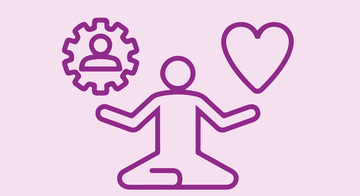Stress Management
Stress is a feeling of emotional and physical tension that can come from any event or thought which makes you feel frustrated, angry, or nervous. Stress is your body's reaction to a challenge or demand.
- However, stress is not always bad- it was borne out of the need to survive.
- If left unmanaged, stress can affect productivity, decrease the quality of work and can cause physical and mental illness.
- To make sure stress is not hampering your productivity and health, knowing effective stress management techniques are very important.
Some effective ways of managing stress are:
- Exercise: which can be running, swimming, cycling, dancing, aerobics or anything that needs prominent physical movement.
- While we exercise, it reduces our body's levels of stress hormones, such as adrenaline and cortisol. On the other hand, it stimulates the production of endorphins in our brain that are the body's natural painkillers and mood elevators.
- Endorphins also improve the ability to sleep, which in turn reduces stress.
- Healthy diet: can also help in reducing stress.
- Stress negatively affects blood pressure and blood flow.
- Having a healthy diet rich in minerals, containing complex carbohydrates, lean proteins, fatty acids and omega-3, antioxidants etc can improve blood flow in the body.
- Herbal tea, dark chocolate, avocado, banana, fish etc are also known for relieving stress.
- Sleep: a powerful stress reducer.
- Following a regular sleep routine:
- calms and restores the body
- improves concentration
- regulates mood
- sharpens judgement and decision-making.
- Setting a sleep schedule, taking less caffeine close to bedtime and avoiding electronics before bedtime helps one to fall asleep faster.
- Relaxation techniques such as yoga, meditation, deep breathing etc. can also help reduce stress.
- Laughing therapy, aroma therapy and sound therapy can also be helpful.
- Following a regular sleep routine:
Average Rating: ☆ ☆ ☆ ☆ ☆ (0 reviews)



